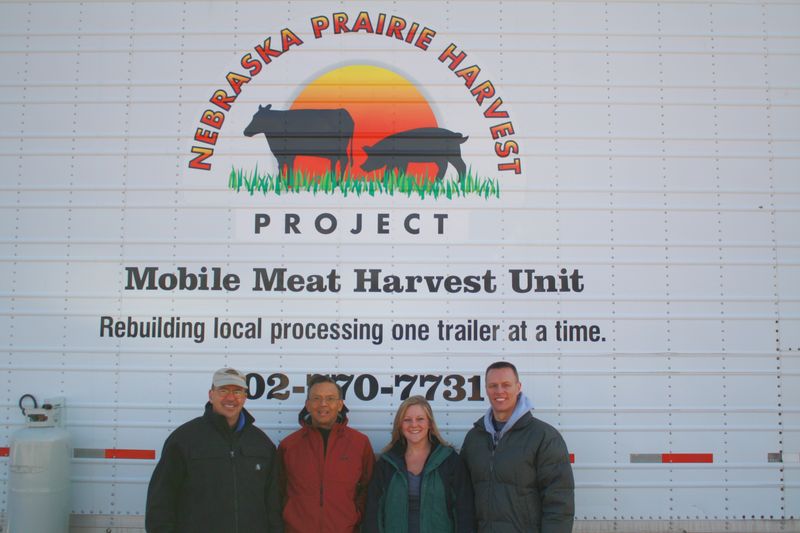Colorado Team Experiences Mobile Slaughter Unit in Action
- by tribe
By Letina Matheny, Director of Catering
Ranchers who raise their meat responsibly and humanely are increasingly hoping that small-scale mobile slaughterhouse units — essentially abattoirs on wheels — can help them stay in business. Instead of trucking livestock to processing facilities, ranchers schedule a visit from the mobile slaughter unit, thus helping to localize the food system while being more humane for the animals.
Interested Colorado College students, Bon Appétit staff, and managers recently had the opportunity to attend a live slaughter demonstration by Ranch Foods Direct at Venetucci Farm.
"Providing additional small-scale processing with mobile units is an important component in rebuilding local and regional sustainable food systems," said Mike Callicrate, owner of Ranch Foods Direct, a Bon Appétit Farm to Fork supplier. “For many ranchers, there’s little choice of where to sell your cattle if you want to control the distribution or sell the butchered meat yourself."
Guests could witness as much of the process as they wished and as close up as they were comfortable. Most watched the steers and hogs being killed and bled before being carted up to the mobile unit. From there, many people, including kids, climbed inside to watch the animals being meticulously disassembled by the butchers.
For those who didn't grow up on farms or even in agricultural communities, the process was eye opening. “Keeping in mind that this process is much more humane — since the animals don't have to undergo the stress of travel to a large slaughter facility — made watching even the gross or sad parts bearable," said 2001 Colorado College alumnus, Matthew Schniper.
Four of the cows that were slaughtered that day were used in the Colorado College café. After the butchers cut the meat into sections, it was used for hamburgers, steaks, brisket, and roast. The cooks also used the bones to make a hearty stock so that nothing would go to waste.
